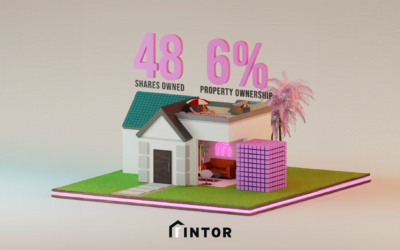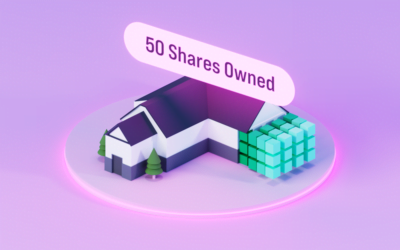Learn why real estate has traditionally been considered an attractive investment option for millions of people. We dive into how properties can generate cash flow, appreciate in value, and build long term wealth.
Why Invest in Real Estate?
Real estate investing has many benefits, including the ability to generate passive income, build equity value, and diversify from other asset classes. There are only a few alternative assets that can offer these benefits. Real estate can be a great way to generate a return for years to come.
Disclaimer: this is general information and not financial advice. Please consult a financial advisor and tax professional for your personal situation.
Cash Flow
Real estate is an attractive investment due, in part, to the consistent cash flow that can be generated by a property’s monthly rental income. A common approach to real estate investing is to buy properties and lease them out to tenants, whether they be individuals, families, or businesses.
Even though the details of buying a multi-million dollar office park and a two-bedroom apartment are different, the fundamental goals can be similar. The objective is to purchase a property and have the rental payments cover the monthly expenses. The net remainder would be your profit.
One of the most common performance factors used by investors is called the capitalization rate, which measures an investment’s ability to generate cash flow. If your expenses remain constant, the cash generating potential of a property increases the longer that you hold onto the asset.
Since the property’s market value and rental potential can vary in different markets, it’s important to align on the time horizon when looking at the cap rate of multiple properties.
Capital Appreciation
In addition to generating cash flow, real estate properties tend to increase in value over time. The total return for a property is the sum of its cash flow (from rent) and capital appreciation (from the price increasing over the years).
The chart below is from the St. Louis Fed and shows the average sale price of U.S. homes from 1970 to 2022. In Q1 1970, the average home sold for $27,000 compared to $514,100 in Q1 2022 – 1,804% growth!

Building Wealth
Because real estate prices tend to be stable or increase, it can be helpful to own equity in real estate. Imagine if you purchased a townhome for $250,000 with a 20% down payment and 80% financed through a 20-year fixed rate mortgage.
Over the course of the loan, you will continue to increase your equity value in the property. Once the loan is fully paid off, you will own 100% of that property. Your initial $50,000 down payment has now turned into something worth hundreds of thousands of dollars.
You can also use the equity value in your first properties as leverage to purchase more properties. This is how some real estate investors are able to significantly grow their wealth.
Portfolio Diversification
Traditionally, real estate performance has not been correlated with the performance of the stock or bond markets. As a result, sophisticated investors will look to diversify across stocks, bonds, and real estate to have a balanced portfolio.
When constructing an investment portfolio, you should consider your risk profile, expected returns, tax situation, and liquidity needs. Real estate tends to be less volatile and liquid than stocks, making it a good choice for long term capital allocation.
Inflation Hedge
As mentioned above, your purchase price and original loan amount are fixed numbers. But the property’s market value and income potential will grow over time, providing a hedge against inflation.
Let’s take a condominium purchased in 1980 as an example. The original purchase price was $100,000 and the buyer put $20,000 of their own cash as a down payment, borrowing the rest from the bank. The property was rented in 1980 for $400/month.
After 30 years, the loan is fully paid off and the property is owned free and clear. What’s happened to the rent over this time period?
In most markets, the ability for the owner to increase rent will match or exceed inflation. The original rent of $400/month could have easily grown to $600, $800, even $1000 per month. All the while, if you never sold the asset, then your cost basis would still be based on the 1980 numbers.
Summary
Real estate has been considered to be a robust asset class in investment portfolios for decades. Because people will always need a place to live and businesses will need a storefront, there will always be steady demand for properties across all categories – residential, commercial, industrial, etc.
There are plenty of financial benefits to owning real estate, which is why there are so many investors looking to buy their first properties or grow their portfolios. These benefits include generating passive income, increasing in value over time, and building long term wealth.



